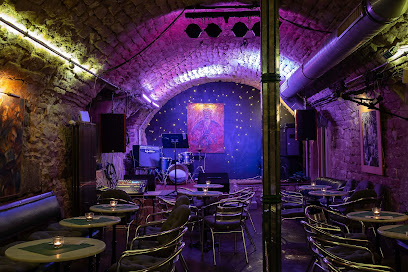
Federal Court of Justice: Guardian of German Law
Discover the heart of German law at the Federal Court of Justice in Karlsruhe, a symbol of justice and legal tradition, and explore the adjacent Museum of Legal History.
The Federal Court of Justice (Bundesgerichtshof), Germany's highest court of civil and criminal jurisdiction, stands as a symbol of justice and legal tradition in Karlsruhe. Established in 1950, the court resides primarily within the Hereditary Grand Duke's Palace, a magnificent structure blending historical grandeur with the gravity of its purpose. While not generally open for casual tours, the building itself is an imposing sight, and its presence underscores Karlsruhe's significance as a center of German law. The adjacent Museum of Legal History offers insights into the evolution of the German legal system. Located on Herrenstraße, the court is easily accessible and surrounded by other attractions, making it a worthwhile stop for those interested in law, history, or architecture. While direct access to the court's proceedings is limited, the building's exterior and the nearby museum provide a tangible connection to the heart of German jurisprudence. The court's role extends beyond its physical location, shaping legal precedents and influencing the course of justice throughout the nation.
A brief summary to Federal Court of Justice
- Herrenstraße 45 A, Karlsruhe, Innenstadt-West, 76133, DE
- +497211590
- Visit website
Local tips
- Visit the Museum of Legal History (Rechtshistorisches Museum) within the Federal Court of Justice complex to learn about the evolution of the German legal system. Open Tuesdays 10am-12pm (except public holidays).
- Explore the Herrenstraße, the street where the court is located, known for its antique shops and boutiques.
- Combine your visit with a trip to the nearby Karlsruhe Palace and its gardens for a glimpse into the city's royal past.
- Check the official website of the Federal Court of Justice for any public events or exhibitions that may be taking place during your visit.
- Take advantage of Karlsruhe's excellent public transportation system to easily reach the Federal Court of Justice and other attractions in the city.
Getting There
-
Walking
From Karlsruhe Marktplatz, walk east along Kaiserstraße, then turn right onto Herrenstraße. The Federal Court of Justice will be on your left, about a 10-15 minute walk. This route is straightforward and passes by numerous shops and cafes.
-
Public Transport
Take the S-Bahn to the 'Herrenstraße' station. The Federal Court of Justice is a short walk from the station. Tram lines 1, 2, 3, 4, S1, S11, S2, and S5 all stop at Herrenstraße. A single-journey ticket for two zones (Karlsruhe city center) costs around €2.60. Tickets can be purchased from machines at the station or via the KVV app.
-
Taxi/Ride-Share
A taxi or ride-share from Karlsruhe Hauptbahnhof (main train station) to the Federal Court of Justice will take approximately 5-10 minutes, depending on traffic. The estimated cost is between €10-€15.
-
Driving
Driving to the Federal Court of Justice is possible, but parking in the immediate vicinity can be limited. There are parking garages nearby, such as the 'Am Marktplatz' garage. Parking fees typically range from €2-€3 per hour.
Discover more about Federal Court of Justice
Iconic landmarks you can’t miss
Federal Court of Justice
0.0 km
Discover the heart of German law at the Federal Court of Justice in Karlsruhe, a symbol of justice and legal tradition, and explore the adjacent Museum of Legal History.
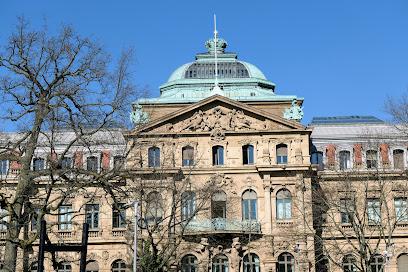
Kaiserstraße 217
0.3 km
Experience Karlsruhe's vibrant Kaiserstraße: a blend of historic charm and modern shopping, offering diverse retail, culinary delights, and cultural events in the heart of the city.
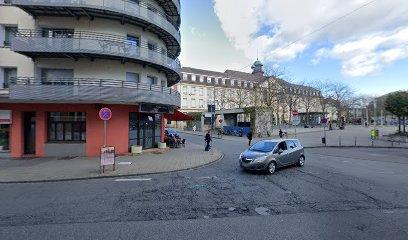
Rondellplatz
0.5 km
Discover Rondellplatz in Karlsruhe: A neoclassical square steeped in history, crowned by the Constitution Column, and surrounded by architectural gems and vibrant city life.
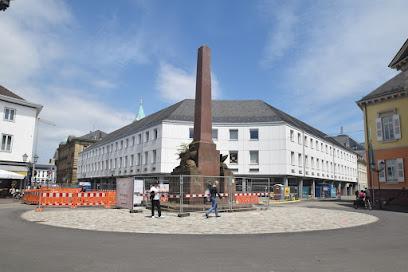
Federal Constitutional Court
0.7 km
Visit Germany's Federal Constitutional Court in Karlsruhe, the guardian of the Basic Law, and witness the heart of German democracy in action within its transparent architecture.
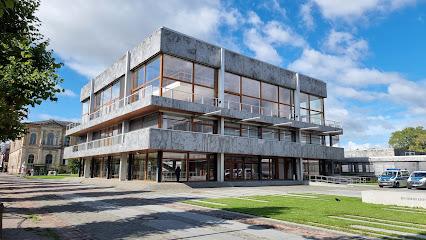
Reichardtstraße 22
6.6 km
Explore the architectural beauty and rich history of Reichardtstraße 22 in Karlsruhe's charming Durlach district.

Schloss Rastatt
21.6 km
Discover Schloss Rastatt, the oldest Baroque residence on the Upper Rhine, a Versailles-inspired palace with opulent staterooms, historical museums, and serene gardens, offering a glimpse into German royalty.
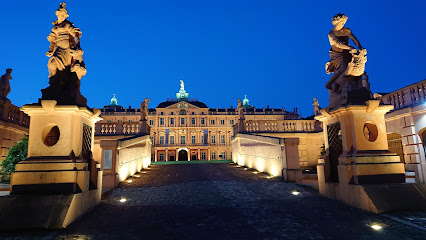
Rhine River
24.9 km
Discover the Rhine River: A legendary waterway through the heart of Europe, offering stunning scenery, historic castles, and vibrant culture from the Swiss Alps to the North Sea.

Friedensdenkmal “Mahnmal des Friedens - PAX AETERNA“
25.6 km
Discover the Friedensdenkmal in Philippsburg, a profound monument dedicated to peace, reflection, and historical significance, perfect for every traveler.
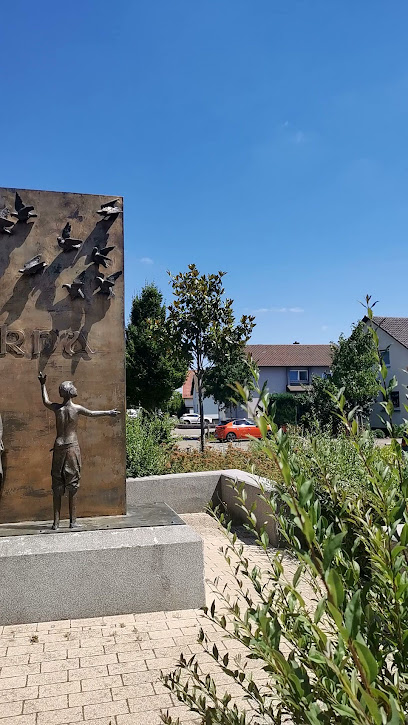
Fünf-Quellenhütte
26.5 km
Discover the serene beauty of the Black Forest at Fünf-Quellenhütte, a tranquil haven for hikers and nature enthusiasts near Baden-Baden, Germany.
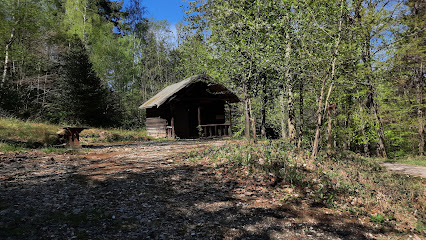
Ritterplatte
27.9 km
Experience panoramic vistas from Ritterplatte, Baden-Baden's historic viewpoint, offering stunning views of the Rhine Valley, Black Forest, and the charming city below, a photographer's dream.
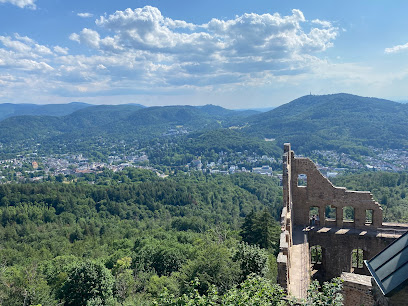
Hohenbaden Castle
27.9 km
Explore the enchanting ruins of Hohenbaden Castle, a historical gem offering breathtaking views and scenic hiking trails in Baden-Baden, Germany.
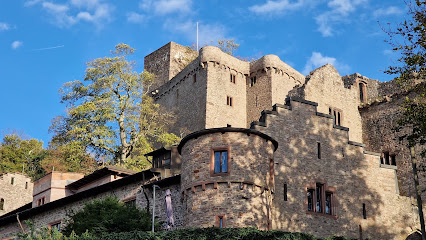
Verfassungsplatz
29.1 km
Discover Verfassungsplatz in Baden-Baden: A historic square and transport hub offering easy access to the town's top attractions, vibrant atmosphere, and a taste of local life.
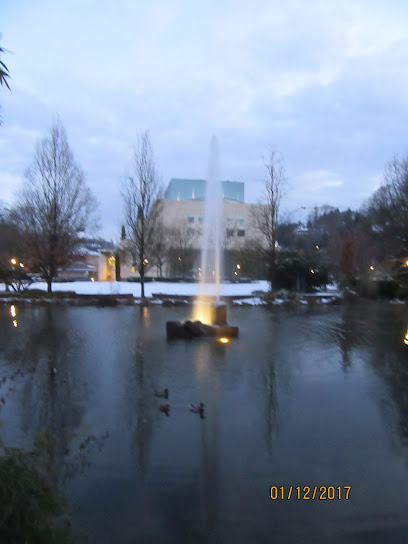
Engelstatue
29.1 km
Discover the Engelstatue in Baden-Baden, a breathtaking historical landmark surrounded by stunning views and rich cultural heritage.
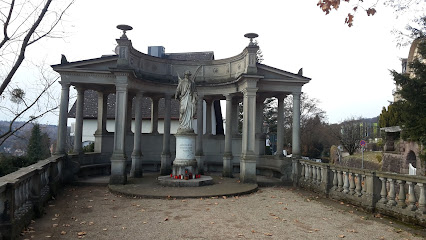
Paradies Cascade
29.2 km
Discover the serene beauty of Paradies Cascade in Baden-Baden: a harmonious blend of nature, art, and history in a tranquil ornamental garden with cascading fountains.
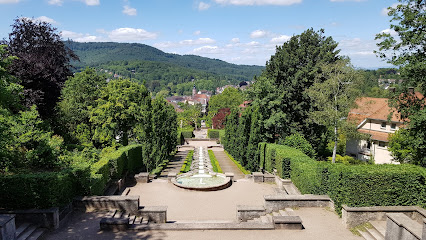
Willy -Brandt-Platz
29.4 km
Discover Baden-Baden's historical charm at Willy-Brandt-Platz, a square where history, architecture, and tranquility converge in the heart of the city, offering a unique glimpse into its past.
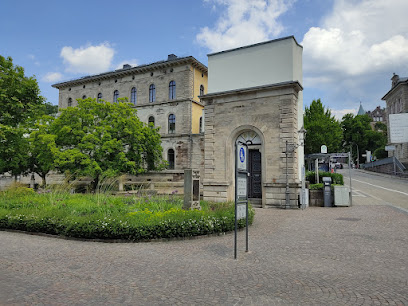
Unmissable attractions to see
Museum of Literature on the Upper Rhine
0.5 km
Explore the rich literary heritage of the Upper Rhine at Karlsruhe's Museum of Literature, a cultural gem for book lovers and history enthusiasts alike.
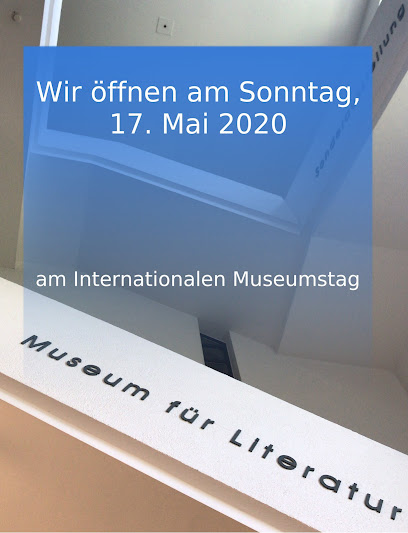
Marktplatz
0.6 km
Explore Marktplatz in Karlsruhe, a historic market square filled with vibrant culture, stunning architecture, and delightful local markets.
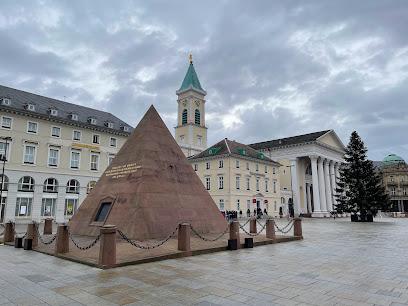
Karlsruher Pyramide
0.6 km
Discover the historical allure of the Karlsruher Pyramide, a stunning landmark steeped in history, culture, and beauty in the heart of Karlsruhe.
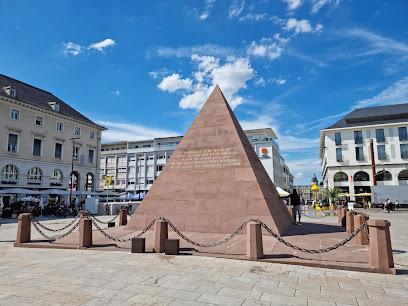
Karlsruhe Botanical Garden
0.7 km
Discover the beauty and tranquility of Karlsruhe Botanical Garden, a historic oasis filled with diverse flora and serene landscapes in the heart of Germany.
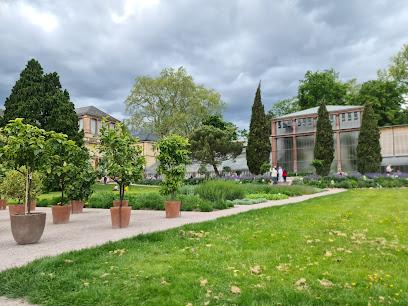
Therme Vierordtbad
0.7 km
Experience ultimate relaxation and family fun at Therme Vierordtbad, Karlsruhe's premier water park with thermal baths and thrilling slides.
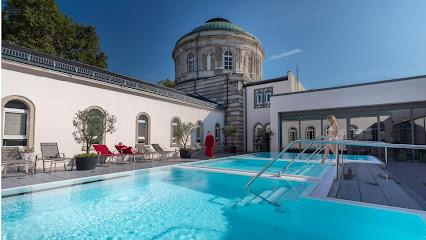
Badisches Staatstheater Karlsruhe
0.9 km
Discover the artistic heart of Karlsruhe at Badisches Staatstheater, a vibrant venue for opera, theater, and unforgettable performances.

State Museum of Baden
0.9 km
Explore the State Museum of Baden in Karlsruhe, a cultural gem showcasing the rich history and art of the Baden region.
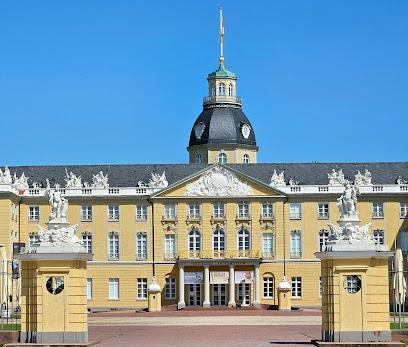
Karlsruhe Palace
0.9 km
Experience the elegance of Karlsruhe Palace, a baroque marvel featuring fascinating exhibitions, beautiful gardens, and cultural events in the heart of Karlsruhe.
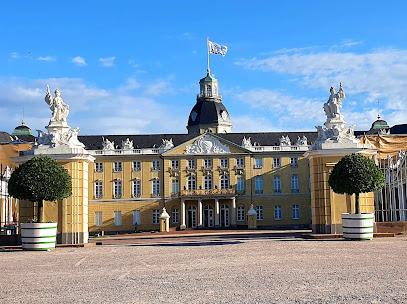
Zoological Gardens Karlsruhe
1.0 km
Explore Karlsruhe's Zoological Gardens, a captivating blend of wildlife and lush gardens that offers family-friendly fun and educational experiences.
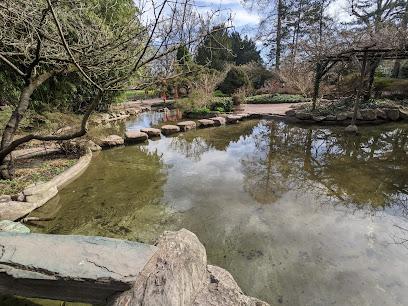
Schlossgarten
1.0 km
Explore the serene beauty of Schlossgarten in Karlsruhe, a stunning state park perfect for relaxation, cultural exploration, and leisurely strolls.
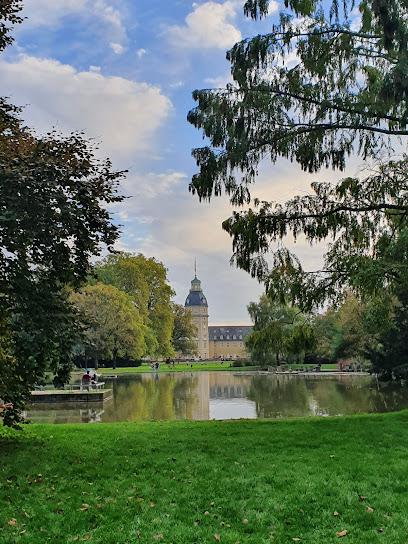
ZKM | Center for Art and Media
1.1 km
Experience the fusion of art and technology at the ZKM | Center for Art and Media in Karlsruhe, a hub for contemporary culture and creativity.
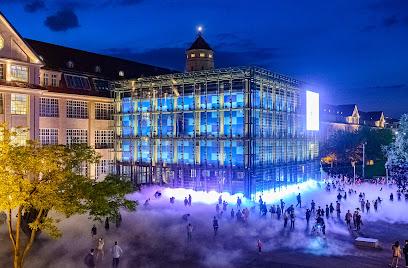
Städtische Galerie Karlsruhe
1.2 km
Explore Städtische Galerie Karlsruhe, a modern art museum showcasing innovative exhibitions and contemporary masterpieces in the heart of Karlsruhe.
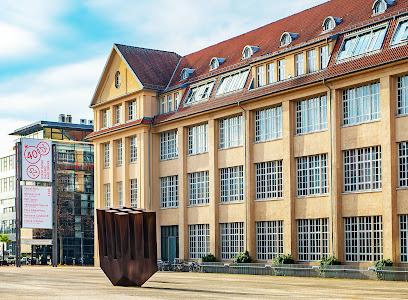
Schloss Gottesaue
2.2 km
Discover the architectural beauty and cultural significance of Schloss Gottesaue, a stunning castle in Karlsruhe surrounded by lush gardens.
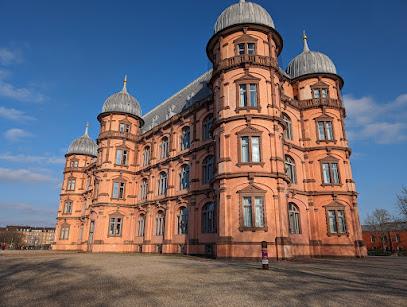
Alter Schlachthof
2.6 km
Explore Alter Schlachthof in Oststadt, a cultural hub blending history, art, and gastronomy in a vibrant atmosphere.
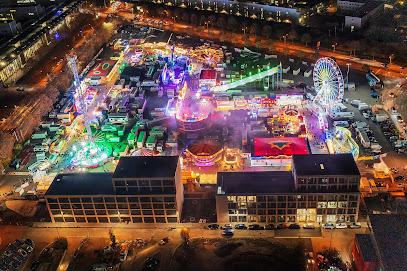
Klösterle
26.0 km
Explore Klösterle, a serene tourist attraction in Baden-Baden, where natural beauty meets rich history amid breathtaking landscapes.
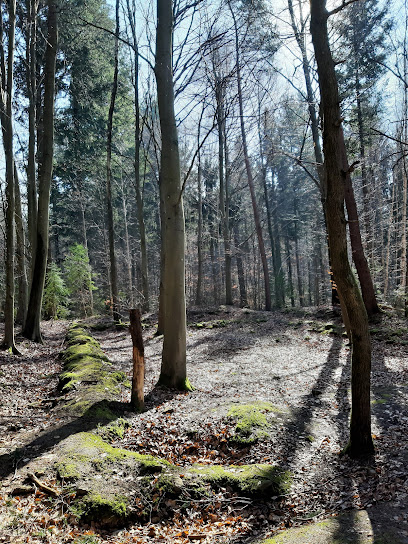
Essential places to dine
Pfälzer Stube
19.0 km
Experience authentic Palatine cuisine at Pfälzer Stube in Herxheim bei Landau – where tradition meets exceptional culinary artistry.
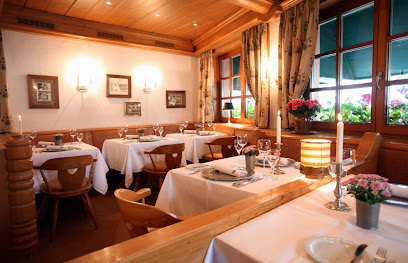
Leka.
28.6 km
Experience exquisite dining at Leka in Baden-Baden—where culinary excellence meets cozy ambiance.
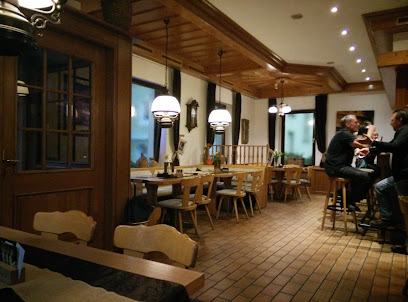
Hemingways
28.8 km
Discover Bavarian flavors and vibrant social vibes at Hemingways Restaurant & Bar in scenic Baden-Baden.
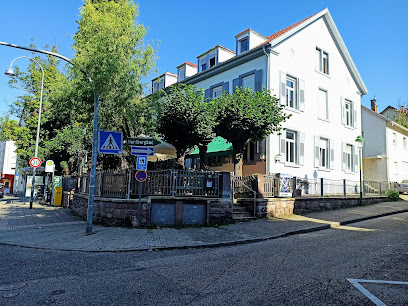
moriki baden-baden
29.1 km
Discover Moriki in Baden-Baden: Where traditional Japanese flavors meet innovative fusion cuisine for an unforgettable dining experience.

RESTAURANT NIGRUM
29.3 km
Experience culinary excellence at Restaurant Nigrum in Baden-Baden – where fresh ingredients meet innovative cuisine in an inviting atmosphere.
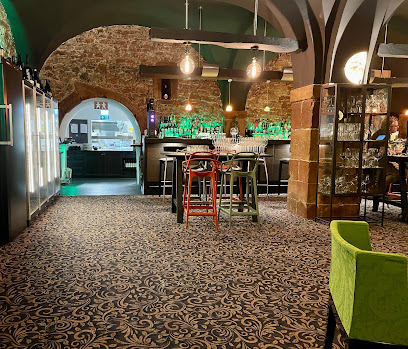
Porterhouse Grill
29.4 km
Experience exquisite dining at Porterhouse Grill in Baden-Baden, where premium meats meet exceptional service in a charming atmosphere.
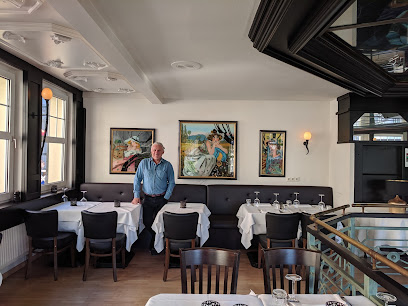
M10 Badisches Cafe & Restaurant
29.4 km
Discover authentic German flavors at M10 Badisches Cafe & Restaurant in beautiful Baden-Baden.
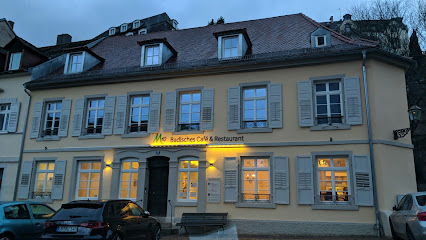
Löwenbräu Baden-Baden
29.5 km
Discover authentic Bavarian cuisine and local brews at Löwenbräu Baden-Baden - A true taste of Germany in every bite.
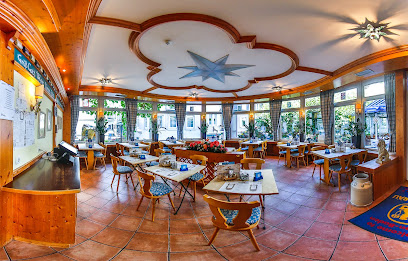
Maltes Hidden Kitchen
29.5 km
Discover Malte's Hidden Kitchen in Baden-Baden: A fine dining experience where every dish tells a story of flavor and creativity.
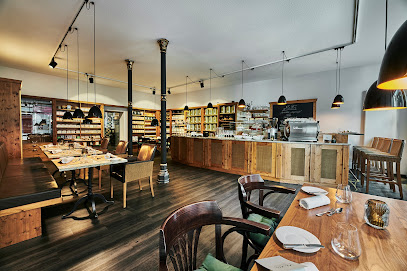
Löwenbräu Keller
29.5 km
Discover authentic Bavarian flavors at Löwenbräu Keller in Baden-Baden - a culinary gem that brings Germany's rich traditions to life.
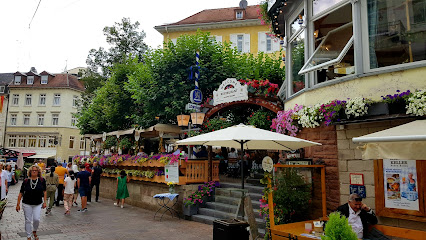
La Casserole
29.6 km
Experience exquisite French cuisine at La Casserole in Baden-Baden, where traditional flavors meet local charm in every dish.
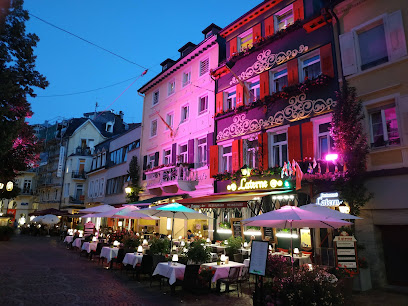
Restaurant Laterne Baden-Baden
29.6 km
Discover exquisite French and German cuisine at Restaurant Laterne in Baden-Baden - where every meal is a celebration of culinary artistry.
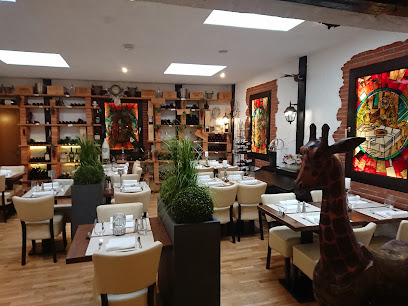
Einhorn
29.6 km
Experience the best of Mediterranean cuisine at Einhorn in Baden-Baden - where flavor meets charm in every dish.
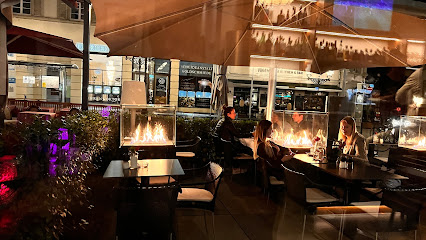
Amadeus Restaurant - Hausbräu
29.7 km
Experience authentic German cuisine at Amadeus Restaurant - Hausbräu in Baden-Baden, where tradition meets modern flair in every dish.
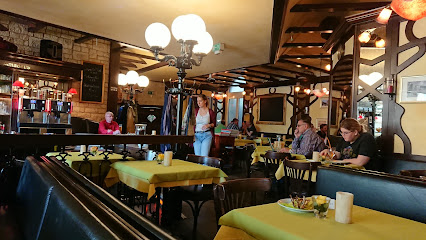
Wallstreet im Hamilton
29.7 km
Experience exquisite dining at Wallstreet im Hamilton, where modern cuisine meets classic elegance in beautiful Baden-Baden.
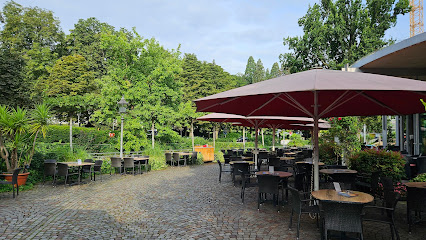
Markets, malls and hidden boutiques
Badendesign GmbH BadenFanShop
13.0 km
Explore unique souvenirs at Badendesign GmbH BadenFanShop, where local culture meets charming craftsmanship in Durmersheim.

Fanny's Boutique
28.7 km
Explore Fanny's Boutique in Baden-Baden for high-quality, stylish clothing and unique accessories that embody sophistication and elegance.

L´Adresse Online & Shop
28.8 km
Explore L'Adresse Online & Shop in Baden-Baden for an exquisite selection of women's fashion that combines elegance with contemporary style.

Shopping Cité
29.0 km
Discover a shopping haven at Shopping Cité in Baden-Baden, where you'll find everything from tech to groceries in a vibrant mall atmosphere.

ANNO Dazumal Schönes, Altes & ganz schön Altes
29.2 km
Explore a unique blend of architectural salvage, antiques, and art in Baden-Baden's enchanting gift shop, ANNO Dazumal.

Wunjo Kreativ & Einzigartig
29.3 km
Discover unique handcrafted gifts and sustainable fashion at Wunjo Kreativ & Einzigartig in Baden-Baden - a must-visit for creative souls.
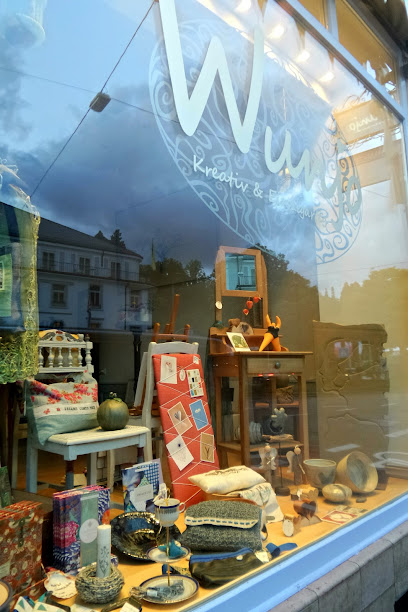
Wagener Shopping Baden-Baden
29.4 km
Discover a unique shopping experience at Wagener Shopping in Baden-Baden, where fashion meets local culture and culinary delights await.
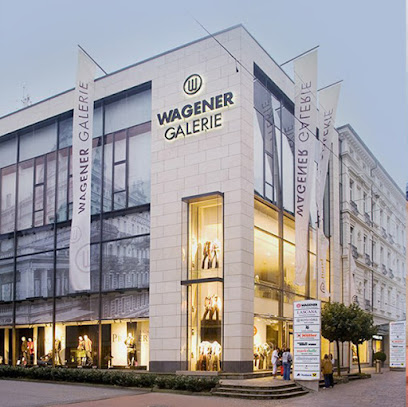
La Boutique
29.4 km
Discover unique fashion at La Boutique in Baden-Baden, where style meets local charm in a delightful shopping experience.

by Lola Concept Store
29.5 km
Explore a curated collection of trendy clothing and unique accessories at by Lola Concept Store in Baden-Baden's vibrant shopping scene.
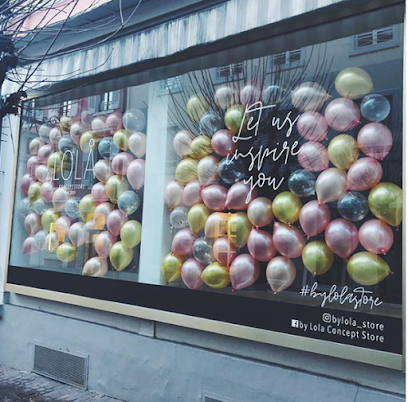
More & More
29.5 km
Discover contemporary fashion at More & More in Baden-Baden, where style meets elegance in an unforgettable shopping experience.
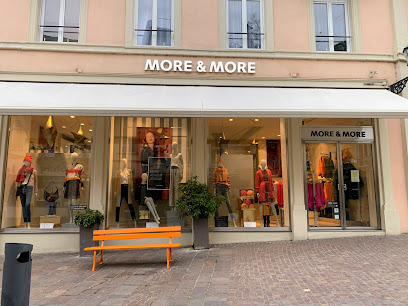
Geschenke HAR-MONI
29.5 km
Explore the charm of Baden-Baden at Geschenke HAR-MONI, where unique gifts and local treasures await every visitor.
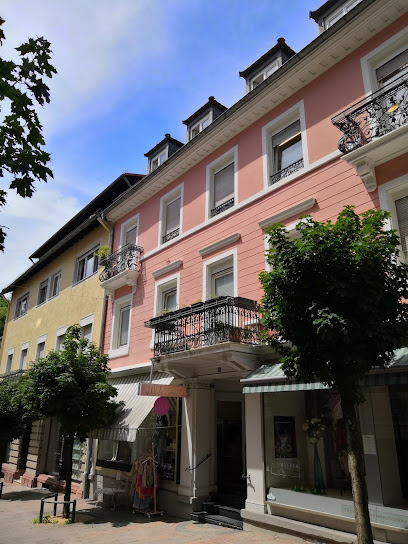
Roppenheim The Style Outlets
29.5 km
Discover unbeatable deals and a vibrant shopping atmosphere at Roppenheim The Style Outlets, your ultimate shopping destination in France.
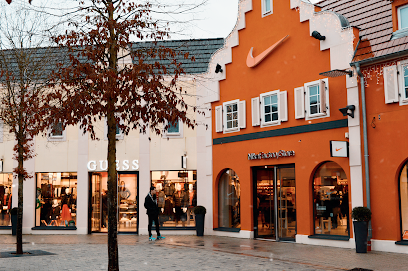
AS Luxury and Vintage
29.5 km
Discover timeless elegance at AS Luxury and Vintage in Baden-Baden, where exquisite bags and leather goods await your exploration.
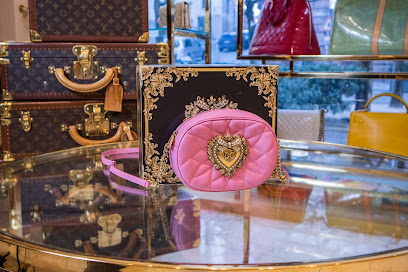
Canvero Accessoires
29.5 km
Explore Canvero Accessoires in Baden-Baden for unique, handcrafted accessories that embody local charm and style.
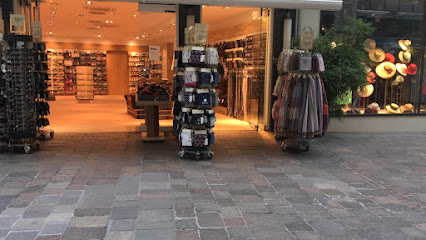
Must Have Baden-Baden
29.5 km
Explore Must Have Baden-Baden for trendy clothing, stylish handbags, and chic accessories in the heart of Baden-Baden's fashion scene.
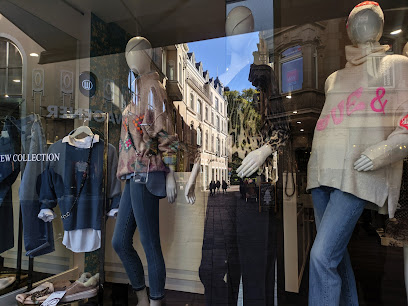
Essential bars & hidden hideouts
The Door - Liquid Kitchen & Highballs - Cocktailbar
0.4 km
Discover exquisite cocktails and a refined atmosphere at The Door - Liquid Kitchen & Highballs, Karlsruhe's premier cocktail bar.
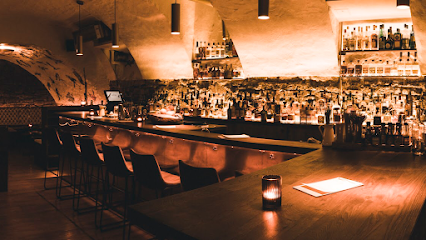
Black Pearl Shisha & Cocktail Lounge
22.0 km
Discover the vibrant Black Pearl Shisha & Cocktail Lounge in Rastatt, where exotic cocktails and shisha create the perfect nightlife experience.
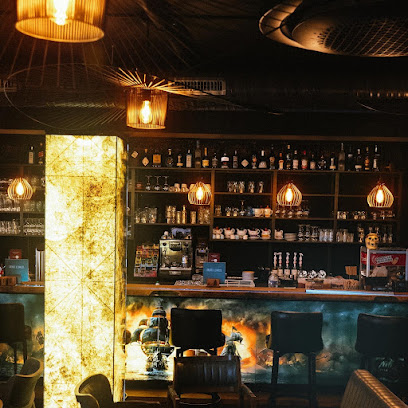
Bengali Cocktailbar & Lounge
24.5 km
Discover the lively Bengali Cocktailbar & Lounge in Gaggenau, where exquisite cocktails and vibrant ambiance create unforgettable nights.
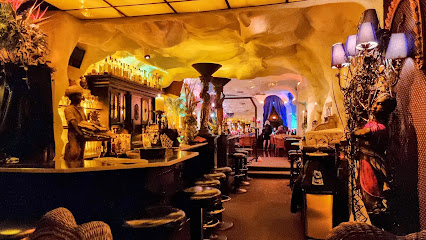
Roomers Rooftop Bar
29.1 km
Discover breathtaking views and exquisite cocktails at Roomers Rooftop Bar in Baden-Baden, a must-visit for every traveler.
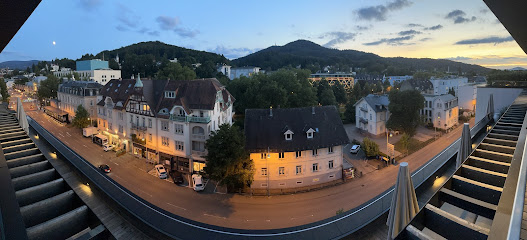
GREYS Bar
29.3 km
Discover the lively GREYS Bar in Baden-Baden, a cocktail bar and Irish pub offering handcrafted drinks and a vibrant atmosphere for all.
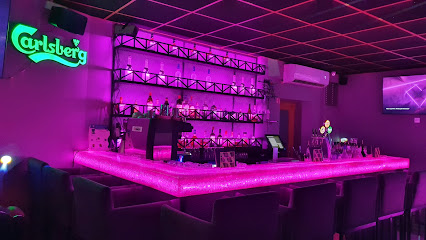
Die Kneip
29.3 km
Experience the vibrant nightlife at Die Kneip, a cocktail bar in Landau offering exquisite drinks, a lively atmosphere, and unforgettable events.
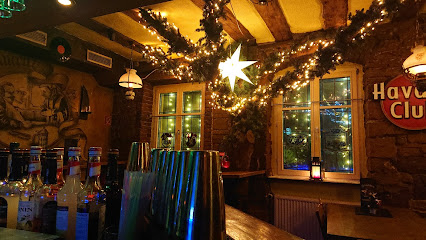
Mardi Events - DE
29.4 km
Experience the vibrant cocktail culture at Mardi Events, Baden-Baden's top cocktail bar offering innovative drinks and a welcoming atmosphere.
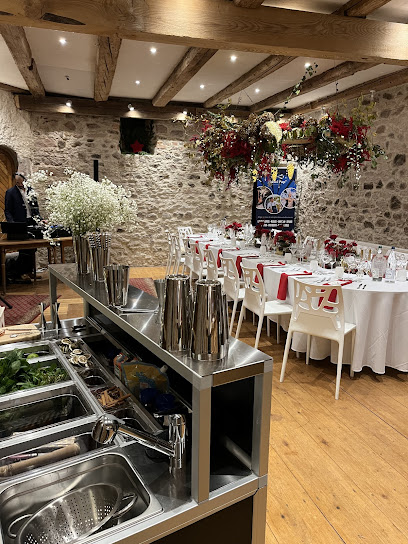
Max’s Bar
29.4 km
Experience the vibrant nightlife of Baden-Baden at Max's Bar, where cocktails flow and the music never stops.

Sun-si-Bar
29.5 km
Discover the lively Sun-si-Bar in Baden-Baden, offering a vibrant atmosphere, diverse drinks, and unforgettable nightlife experiences.
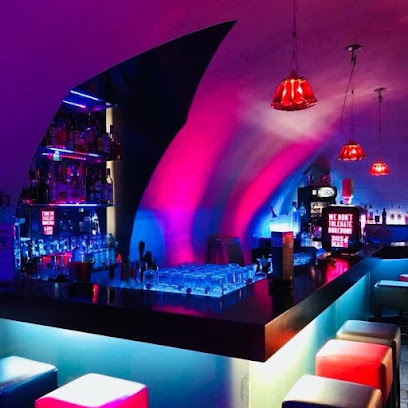
Leo's | Restaurant, Café & Wine-Bar
29.6 km
Experience the perfect blend of Western cuisine, bistro charm, and exquisite cocktails at Leo's in Baden-Baden.
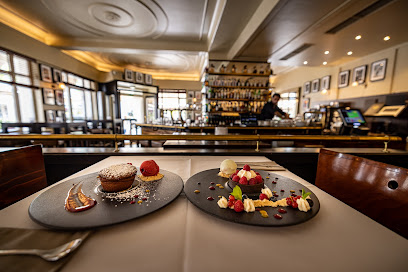
Café Bar Trinkhalle
29.7 km
Discover the charm of Café Bar Trinkhalle in Baden-Baden, where café culture meets bar ambiance for a perfect relaxation spot during your travels.
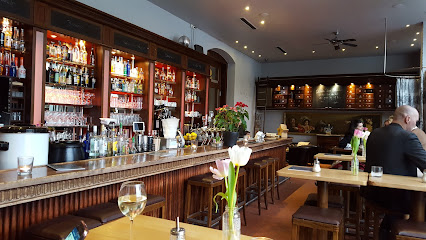
Armando's Bar in der Kreuzpassage
29.8 km
Discover the vibrant nightlife of Baden-Baden at Armando's Bar, where exquisite cocktails meet an energetic atmosphere, perfect for every night out.
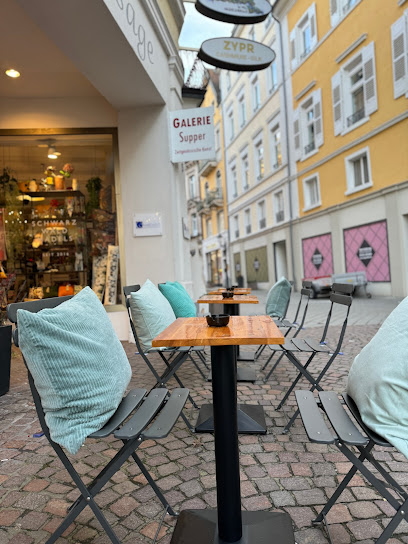
CaféBar Bruder&Schwester
29.8 km
Discover CaféBar Bruder&Schwester in Baden-Baden - a lively bar offering delightful drinks and a cozy atmosphere perfect for relaxation.
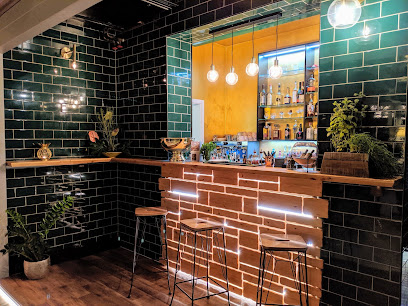
Living Room
29.8 km
Experience the cozy charm of Living Room Bar in Baden-Baden, where delightful drinks and a warm ambiance await every visitor.
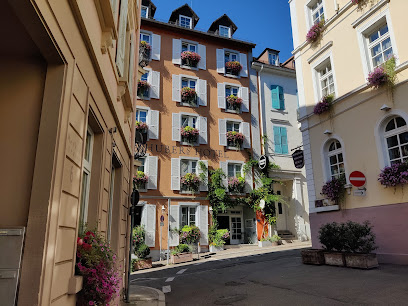
Equipage - dance, music and cocktail bar in Baden-Baden
29.9 km
Discover the vibrant nightlife at Equipage, a premier dance and cocktail bar in Baden-Baden, offering live music and a lively atmosphere.
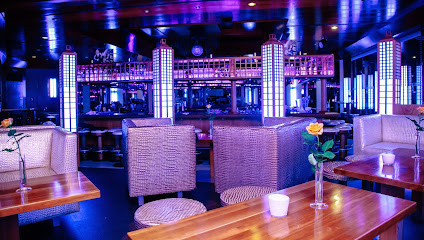
Nightclubs & after hour spots
En Vogue Nightclub
0.2 km
Experience the energetic nightlife at En Vogue Nightclub in Karlsruhe, where the dance floor pulses and the atmosphere electrifies.
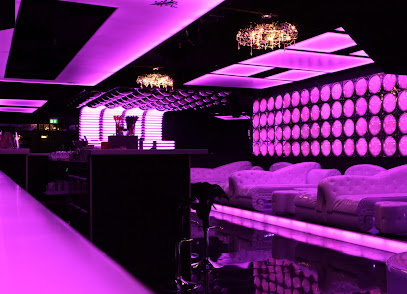
Rheingold Nightclub, Cabaret, Tabledance - Karlsruhe
2.9 km
Discover the thrilling nightlife at Rheingold Nightclub in Karlsruhe, where cabaret meets dance in a vibrant atmosphere.
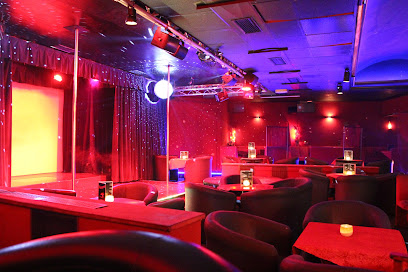
Nachtwerk Musikclub
3.6 km
Experience the vibrant nightlife of Karlsruhe at Nachtwerk Musikclub, where electrifying beats and unforgettable memories await every weekend.
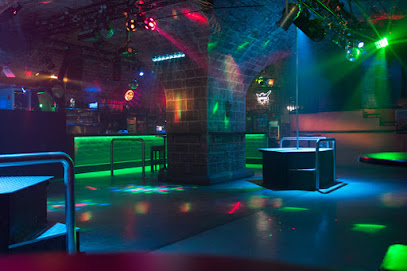
Kaminhalle
30.2 km
Discover the elegance of Kaminhalle in Baden-Baden, where fine teas and cocktails meet a luxurious lounge experience.
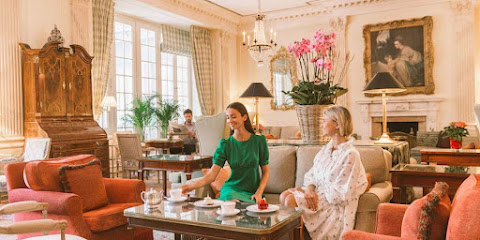
Mr. M's Jazz Club
30.4 km
Discover the vibrant jazz scene at Mr. M's Jazz Club in Baden-Baden, where live music creates an unforgettable atmosphere.
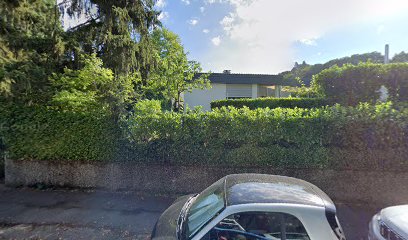
Blues-Club Baden-Baden e.V.
30.9 km
Immerse yourself in the vibrant live music scene at Blues-Club Baden-Baden, where soulful blues and electrifying performances await.
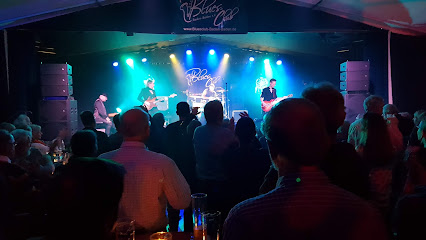
LE MANHATTAN
46.9 km
Unleash your energy at Le Manhattan, Haguenau's top disco club, where unforgettable nights of music and dance await.

Villa Belfort
48.7 km
Experience the electrifying nightlife of Heidelberg at Villa Belfort, where music, dancing, and vibrant energy await you.
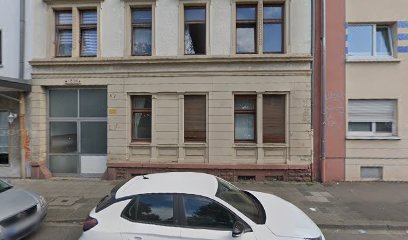
Karlstorbahnhof Mitte
49.5 km
Karlstorbahnhof Mitte: The heart of Heidelberg's nightlife, where unforgettable dance experiences await amidst vibrant music and a lively crowd.
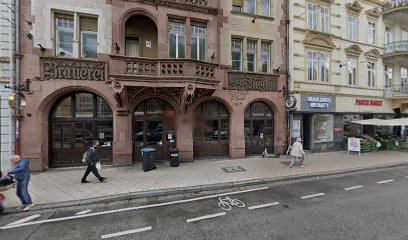
Europa Bar & Smokers Lounge
49.6 km
Discover the elegance of Heidelberg at Europa Bar & Smokers Lounge, where cocktails, piano music, and sophistication meet.
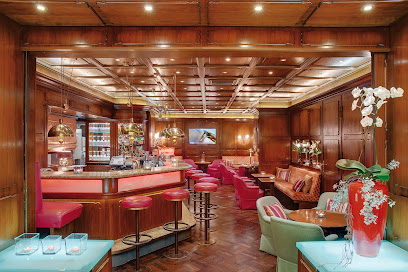
Toniq Club - Heidelberg
49.8 km
Unleash your night at Toniq Club in Heidelberg, where the dance floor beckons and the beats never stop.
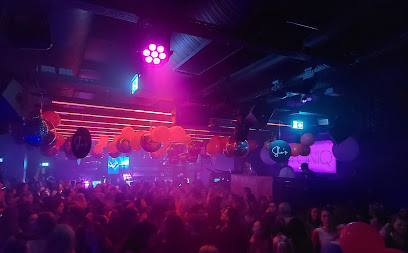
Tiffany-Girls
49.9 km
Experience the electrifying nightlife at Tiffany-Girls, Heidelberg’s premier night club, where unforgettable moments and vibrant energy await every visitor.
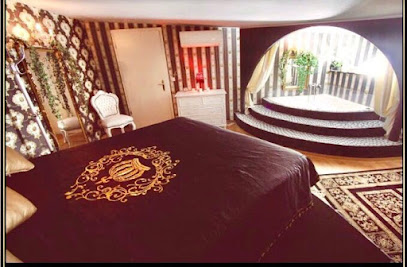
Club 1900
50.2 km
Dive into the energetic nightlife of Heidelberg at Club 1900, where great music and vibrant ambiance await you.

Cave 54
50.4 km
Dive into Heidelberg’s nightlife at Cave 54, the ultimate dance club featuring eclectic music, a vibrant atmosphere, and unforgettable experiences.
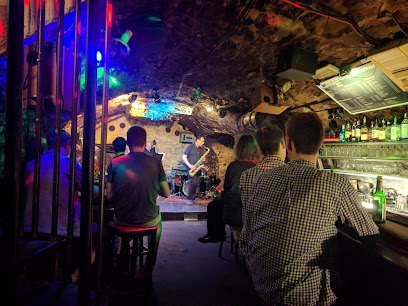
Jazzhaus Heidelberg
50.7 km
Discover the heart of Heidelberg's nightlife at Jazzhaus, where live music and vibrant performances create unforgettable experiences.
